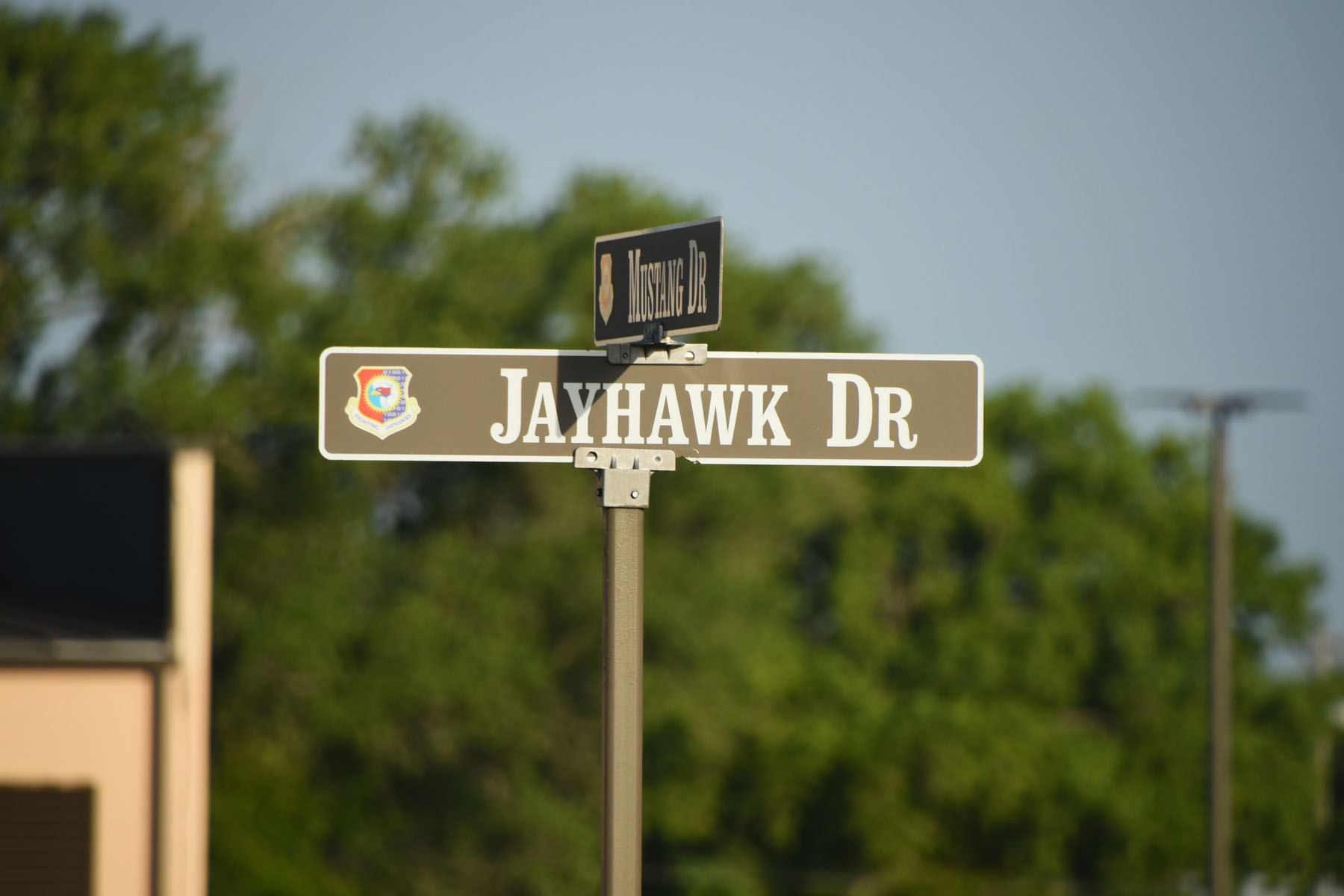MCCONNELL AIR FORCE BASE, Kan. -- 
The 184th Wing hosted about 60 people from around the United States for a working group designed to streamline operations during an emergency response. The attendees are all part of UPADs, or Unclassified Processing Analysis Dissemination cells, which provide imagery to incident commanders and decision makers on the ground. The working group was held at McConnell Air Force Base, Kansas, in May 2022.
Master Sgt. Aaron Bayes, noncommissioned officer of the 184th Wing’s UPAD, organized the working group after he noticed that many of his counterparts across the U.S. had retired or moved on. His goal was to update the roster and bring everyone up to speed on new techniques and technologies.
“We invited five different software companies that we work with during our domestic operations,” said Bayes. “They gave briefs about new technologies, capabilities, and training requirements for new UPADs, so they’re mission ready if they’re ever activated.”
The working group established training standards and mission essential task lists that align with the Air Force Specialty Codes associated with each UPAD. For the 184th Wing, the standards align with jobs related to intelligence, surveillance, and reconnaissance.
“When we put someone on annual training days to do domestic operations training, they’re completing job qualifications and essential tasks for their Title 10 mission as well,” said Bayes.
One significant upgrade to the UPAD workflow is the way they share information. In the past, they downloaded commercial satellite imagery of the affected area, then developed Power Point slides and PDFs from the imagery, and sent the final products to on-scene command and control personnel. The process could take days.
“By the time they finished and it reached the incident commander, it would be outdated,” said Bayes.
To improve the process, the working group developed product standards that move away from traditional slides and map printouts. All future products will be uploaded to a website called the ARCHES Portal, where they’ll stay as a living document. This results in better continuity during the emergency response.
“If our UPAD gets activated for a hurricane for a month and there’s a changeover between us and another UPAD, all of our products will be in the portal for them to use,” said Bayes. “The next UPAD can immediately start working and carry on with the same products.”
Bayes said the new system allows for instant communication. Products aren’t stalled by email size limitations, file constraints, and the customer is guaranteed to get the products.
“Hopefully, because of this working group, we’re more capable and more efficient to save people’s lives if there is an emergency response,” said Bayes.